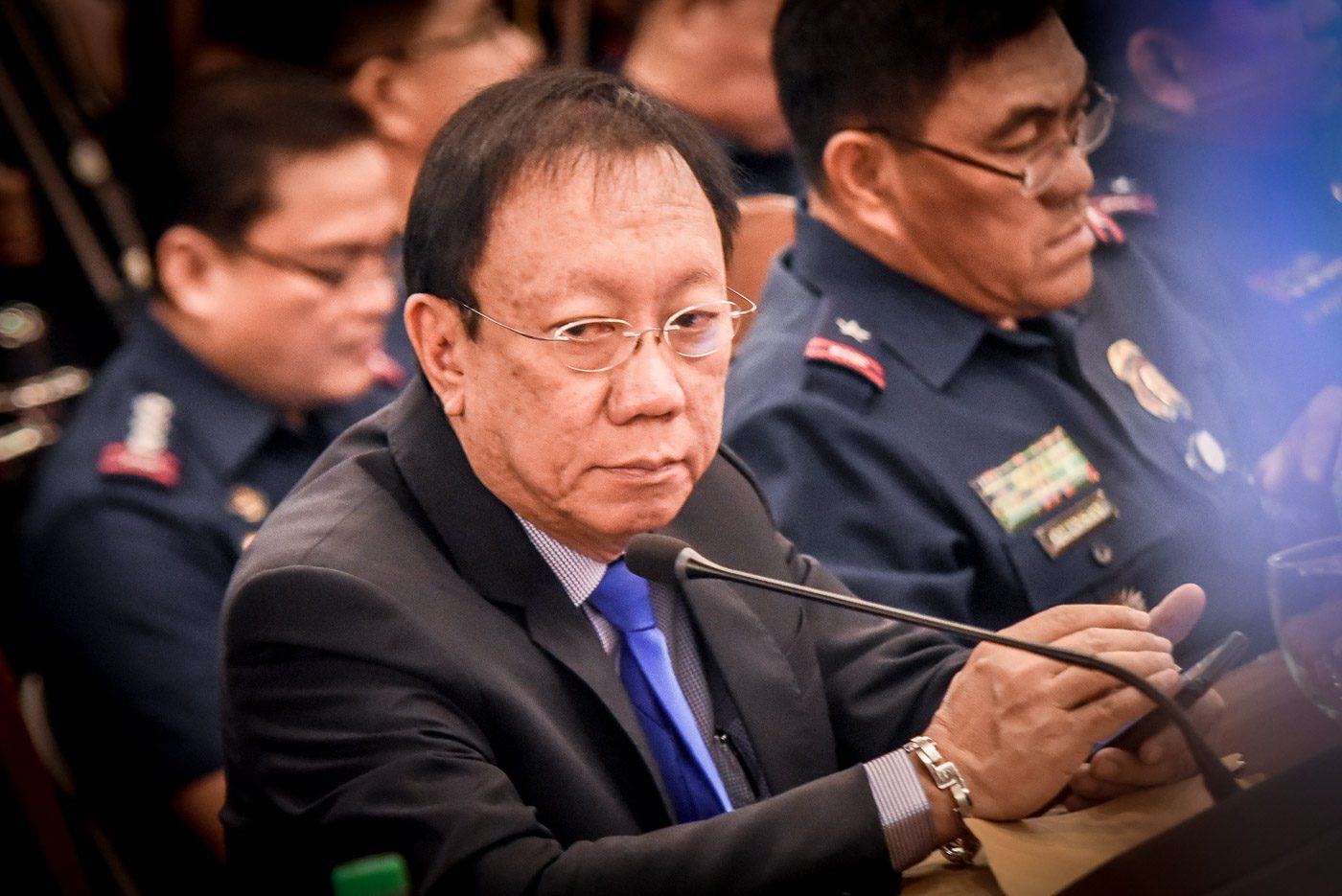SUMMARY
This is AI generated summarization, which may have errors. For context, always refer to the full article.

MANILA, Philippines – After a decision by the Securities and Exchange Commission (SEC) revoking Rappler’s registration, the Department of Justice (DOJ) will now look at company’s possible criminal liability in allegedly violating the Anti-Dummy Law, Solicitor General Jose Calida said on Tuesday, January 16.
“A copy of the decision was furnished to the DOJ concerning the Anti-Dummy law, to be investigated if they have violated it or not,” Calida said.
Asked for confirmation, Justice Secretary Vitaliano Aguirre II said he had already issued a directive “to study all legal angles of the case.” (READ Rappler’s statement: Stand with Rappler, defend press freedom)
Commonwealth Act Number 108 or the Anti-Dummy Law penalizes “evasion of the laws on the nationalization of certain rights, franchises or privileges.”
The SEC en banc said it found Rappler’s issuance of a Philippine Depositary Receipt (PDR) to foreign entity Omidyar Network a violation of the constitutional requirement that all media companies should be 100% Filipino-owned.
Rappler maintains it is wholly Filipino-owned. “PDRs do not indicate ownership. This means our foreign investors, Omidyar Network and North Base Media, do not own Rappler. They invest, but they don’t own,” Rappler said.
Other media companies hold foreign investments through PDRs. (READ: Of PDRs and ‘foreign ownership’ of PH media)
But Calida said media companies should have “100% Filipino ownership and control.”
“They forgot about the control,” Calida said. He was referring to the SEC finding that the clause where Rappler should have “prior good faith discussion” with Omidyar Network before it changes its articles of incorporation or by-laws is already a violation.
Article XVI, Section 11(1), of the Constitution states: “The ownership and management of mass media shall be limited to citizens of the Philippines, or to corporations, cooperatives or associations, wholly-owned and managed by such citizens.”
In 2013, the SEC issued guidelines on foreign investments to implement a 2012 Supreme Court decision on ownership requirements. The SC decision and SEC resolution say the constitutional restriction only applies to shares of stock that can vote in the election of directors. (READ: Supreme Court upholds SEC foreign ownership rules)
Depending on the outcome of the DOJ investigation, Calida said Rappler owners might “possibly” be criminally charged.
Harrasment?
Media groups have slammed the SEC decision as an attack against press freedom.
While Calida admitted to initiating the investigation into Rappler’s ownership, he denied it had anything to do with the news organization’s critical reporting of President Rodrigo Duterte’s administration.
“Nobody was edging anybody. It’s not necessarily [an attack]. If you engage in the business of mass media, you have to comply with the constitutional and statutory regulations,” Calida said.
The Solicitor General also said the calls he made to the SEC was not upon the order of Malacañang. “Definitely not, you know me, I do things on my own, I don’t take orders from anybody,” he said.
Calida said that apart from Rappler, there is no other entity that he’s looking into, and joked with a reporter: “Unless you want me to do what I did in December 2016.” That was the time Calida sent a letter to the SEC requesting for an investigation.
Calida said that what prompted him to push for the investigation were sources coming from all fronts, including reports.
“I’ve read in the newspapers also, I think it was Mr Tiglao (Rigoberto Tiglao of the Manila Times) who wrote about it,” Calida said.
Asked when the SEC decision becomes final and executory, Calida said “15 days.”
Reporters clarified whether Rappler can resort to appealing before the SEC, and then eventually before the courts, before the shutdown order can be final, Calida simply said: “I will not advise them because they might not like my advice.”
“Rappler can exhaust legal remedies. [They can] appeal to the Court of Appeals within 15 days. Meanwhile, SEC decision is not final and executory,” SEC Spokesperson Armand Pan said. – Rappler.com
Add a comment
How does this make you feel?
There are no comments yet. Add your comment to start the conversation.